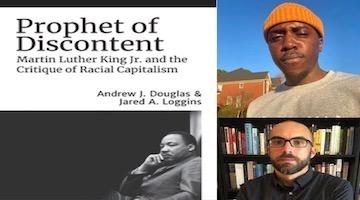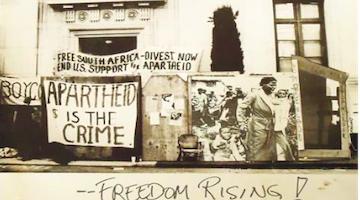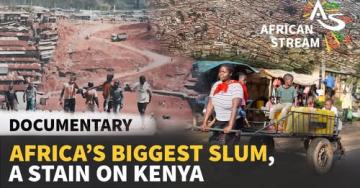MOVE’s history is a reminder why police and prison abolition remain so urgent.
“Those with the power to shape historical remembrance often determine who should and should not be mourned.”
In this series, we ask acclaimed authors to answer five questions about their book. This week’s featured author is Richard Kent Evans. Evans is a Research Associate at Haverford College and the Project Coordinator for the Political Theology Network. His book is MOVE: An American Religion.
Roberto Sirvent: How can your book help BAR readers understand the current political and social climate?
Richard Kent Evans: When I began writing this book, ideas like police and prison abolition were fringe. Today, they are becoming increasingly mainstream. MOVE’s history is a reminder why this work remains so urgent. But I think MOVE’s history also offers a warning. We are just now uncovering how deeply involved federal law enforcement was in coordinating and supporting the attack that we refer to as the MOVE Bombing. More broadly, historians of American Religion are learning more about the role federal law enforcement agencies have played in maintaining white supremacy, determining which religious and political leaders deserve to live, and deciding which religious groups are allowed to flourish and which are suppressed. (A good place to start on this topic is Sylvester Johnson and Steve Weitzman’s The FBI and Religion.) Without question, the Philadelphia Police Department orchestrated and carried out the attack we call the MOVE Bombing. But they wouldn’t have without close cooperation with federal law enforcement, especially the FBI and the ATF. Reforming and dismantling corrupt police departments is an important step, but when will we demand that same level of accountability from our federal government?
What do you hope activists and community organizers will take away from reading your book?
I hope activists and community organizers will find in my book encouragement to attend to the politics of remembrance. This is something people living in the United States are thinking about a lot lately, as we are taking a hard look at which figures from this country’s past ought to be celebrated. One of the reasons that MOVE’s story is not well known is because, in the immediate aftermath of the MOVE Bombing, culpable politicians and a complicit media encouraged people to focus on the neighbors’ loss of property, rather than on the murders of MOVE people. They did this in order to protect authorities from accountability and to blame MOVE people for their own deaths. The politics of remembrance are important because those with the power to shape historical remembrance often determine who should and should not be mourned. And who gets mourned determines how we tell these stories that become our history. Remembrance, or mourning, is a deeply political act, and one with ramifications for the production of history. What would it look like if we, collectively, mourned the death of the MOVE people killed in the MOVE Bombing? What would it look like if we forced the government that killed them to mourn their deaths with us? These acts of mourning are symbolic, but that doesn’t mean they are unimportant.
We know readers will learn a lot from your book, but what do you hope readers will un-learn? In other words, is there a particular ideology you’re hoping to dismantle?
The central claim of this book is that MOVE was (and is) a religion. But there’s a caveat to that: religion does not exist out in the world. It has no essential character. What we call religion is a claim to privilege—in this country to legal privileges not afforded to other groups, forms of speech, actions, or beliefs. This is, I think, the most important idea that the academic study of religion has to offer. And MOVE’s story is really helpful for understanding this. MOVE looked like a religion. They had a sacred text and a prophetic leader. They had beliefs and practices that they understood as essentially religious. But MOVE wasn’t allowed to be a religion. In the U.S., it is ultimately the state that decides what is and what is not a religion. What makes MOVE’s story so fascinating is that they were very consistent in their claims that they were a religion, and that claim was denied by multiple law enforcement agencies (both local and federal), in the courtroom when a judge declared, against all evidence, that MOVE was not a religion, and in public opinion. It happens every time MOVE is written about as a “radical political group” or a “back-to-nature group” or as “anarcho-primitivists.” These labels are not inaccurate in and of themselves: MOVE is political. They are radical. They are concerned with Black liberation, with the environment, and with technology. But this is not what MOVE claimed to be. MOVE people thought they were a religion. I think we ought to understand them on their own terms.
Who are the intellectual heroes that inspire your work?
I leaned on Saidiya Hartman’s work a lot as I wrote this book. Hartman is one of the greatest living writers, and her work is indispensable for scholars who work on slavery and its afterlives. Hartman taught me how to write about traumatic events in order to retrieve the traces of humanity that others have sought to erase. Hartman taught me how to keep going when confronted by an archive of incomprehensible violence every day for years. Hartman taught me that there is a power in telling stories that goes beyond remembrance. The work we do is about wresting a kind of justice out of the archive, about refusing to allow a violent state to silence those it saw as a threat. My thinking on the category of religion, and how it functions in the modern United States, has been deeply influenced by the work of Talal Asad. Asad taught me where to look for ‘religion,’ and how to write ‘religious history’ in a way that attends to structures of power. I also owe a tremendous debt to Robert Orsi, who taught me to pay attention to the long genealogies behind the deeply rooted divisions of ‘good religion’ and ‘bad religion.’
In what way does your book help us imagine new worlds?
I describe this book as a religious history of MOVE. I’ve talked a lot about the “religious” part of that. I’d like to talk about the “history” part. I think what this book helps us imagine goes to the core of what history tries to do: recognize that the events we chronicle as ‘history’ occurred because of prior conditions and decisions. Historians call this contingency, but really all it means is that at any point things could go otherwise. This is a radical, terrifying, and hopeful idea. I can imagine a world in which MOVE flourished apart from violent policing and matured into the religion John Africa hoped to create. They never got that chance. I can imagine, less easily I admit, what it would be like to live in country that doesn’t resort to killing as frequently as the United States does. I can imagine more radical notions of tolerance and inclusivity that protect the vulnerable, honor difference, and elevate the voices of the silenced and the marginalized. The cornerstone of the discipline of history is the claim that things are the way things are because people made them so. If people made the world the way it is, we can make the world into what we want it to be.
Roberto Sirvent is Professor of Political and Social Ethics at Hope International University in Fullerton, CA, and an Affiliate Scholar at Yale University’s Interdisciplinary Center for Bioethics, where he directs the Race, Bioethics, and Public Health Project. He is co-author, with fellow BAR contributor Danny Haiphong, of the book, American Exceptionalism and American Innocence: A People’s History of Fake News—From the Revolutionary War to the War on Terror.
Please join the conversation on Black Agenda Report's Facebook page at http://facebook.com/blackagendareport
Or, you can comment by emailing us at comments@blackagendareport.com



















